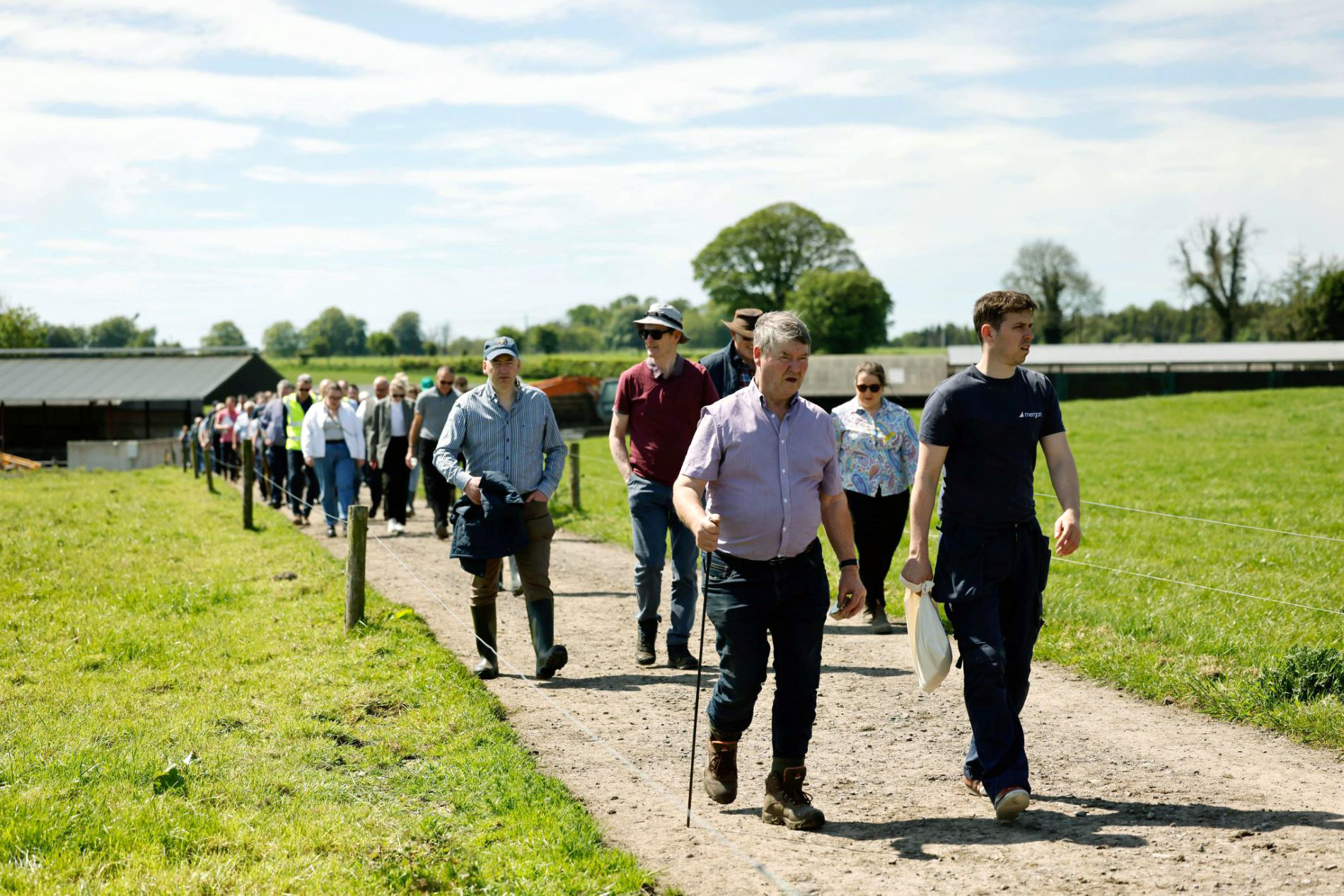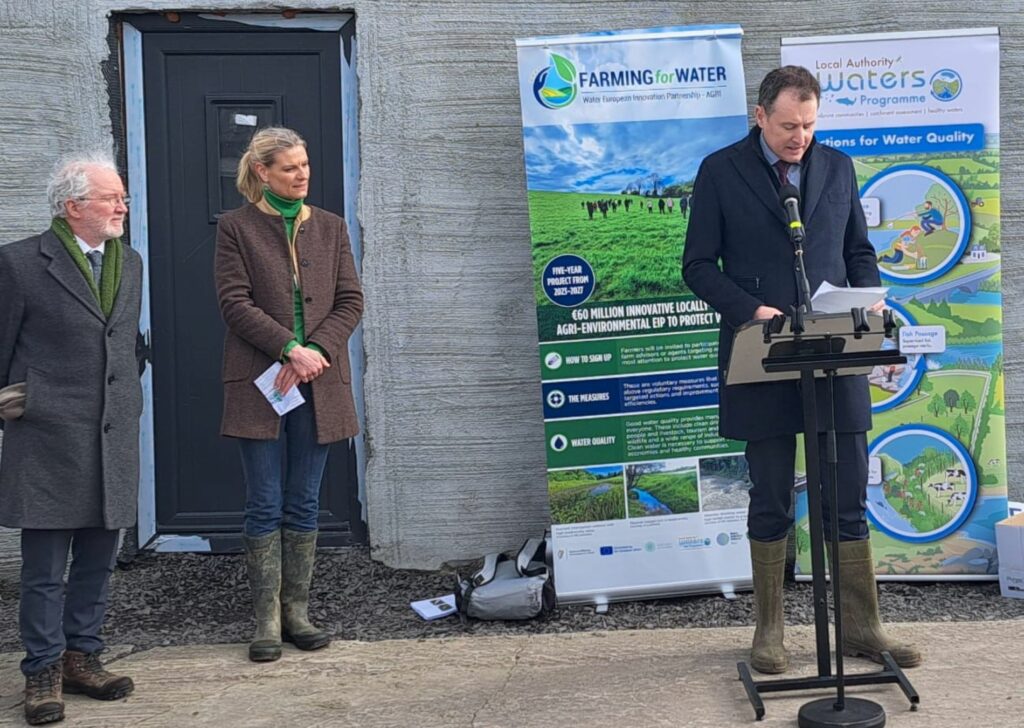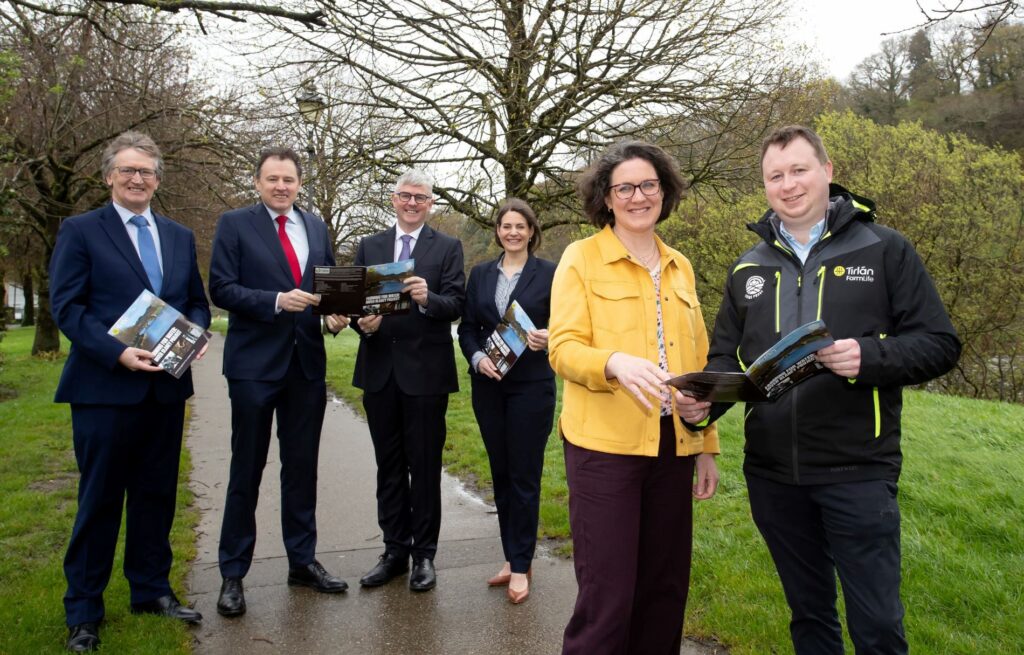Protecting water quality is a priority among co-operatives

The summer of 2024 has seen thousands of farmers take part in farm walks organized by co-ops to highlight the important work of protecting water quality. Dairy co-operatives across the country are involved in various initiatives which support, educate and encourages suppliers to protect water quality.
There are 17,500 dairy farms in Ireland supporting 55,000 jobs with a total economic value of €17.4bn. It is a hugely successful part of the Irish rural economy, and its future success depends on securing an extension of the Nitrates Derogation beyond 2025. Therefore, co-operatives along with Teagasc are working hard to implement programmes aimed purposely and specifically at protecting water.

In May Teagasc launched “Better Farming for Water” highlighting a suite of measures which farmers can employ with the support of Teagasc advisors to protect water. The 8 actions are:
- Reduce purchased nitrogen (N) and phosphorus (P) surplus per hectare.
- Ensure soil fertility is optimal for lime, phosphorus and potassium.
- Ensure application of fertiliser and organic manure at appropriate times and conditions.
- Have sufficient slurry and soiled water storage capacity.
- Manage and minimise nutrient loss from farmyards and roadways.
- Fence off watercourses to prevent bovine access.
- Promote targeted use of mitigation actions such as riparian margins, buffer strips and sediment traps to mitigate nutrient and sediment loss to water.
- Maintain over-winter green cover to reduce nutrient leaching from tillage soils
Meanwhile in March the Department of Agriculture along with the Department of Housing and Local Government announced the establishment of “Farming for Water” in association with the European Investment Programme. A €60m fund will go towards supporting farmers in priority catchment areas. It will be targeted towards around 15,000 farmers in these priority action areas (eg: river Slaney catchment) for the provision of rainwater management plans, earthen bunds and tree planting among a range of other measures designed to help improve water quality over a 5-year period.
At Co-op level Tirlan (River Slaney project), Lakeland (Farming for a better future-protecting our waters), Dairygold (Farming for water to protect our future), Aurivo (Focus 2027), Arrabawn (Champion River Catchment Campaign) are all running incentive and information programmes for their suppliers. Carberry Group, North Cork Creameries, Tipperary and Kerry Dairy Ireland are all working with the Local Authority Waters Programme (LAWPRO) and have held farm walks this summer for their suppliers to highlight measures to be taken to protect water quality.
There has also been a significant reduction in the use of synthetic fertilizer over the past 2 years coupled with an increase in the use of protected urea on farms. And there has also been a rapid expansion of Low Emissions Slurry Spreading (LESS) and the multi species swards and clover on farms during that time which should bear fruit in terms of reducing the impact on water quality.
And Dairy Sustainability Ireland reports:
- 2,500 ASSAP visits completed by Dairy Co-ops in 2023
- There are a total of 50 ASSAP advisors, of which 30 are employed by Dairy Co-ops
- 5,000 ASSAP visits completed by Dairy Co-ops since 2018
- 90% of milk suppliers participating in Co-op Sustainability Programmes
- Over 300,000 carbon assessments carried out on beef and dairy farms under Origin Green
The combined aim of all this work is to help Irish farming meet its national and EU targets in terms of decarbonizing, protecting biodiversity and preserving water quality. Farmers will hope that the results of this collaborative work will be seen in future EPA water quality reports.
